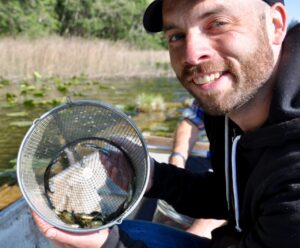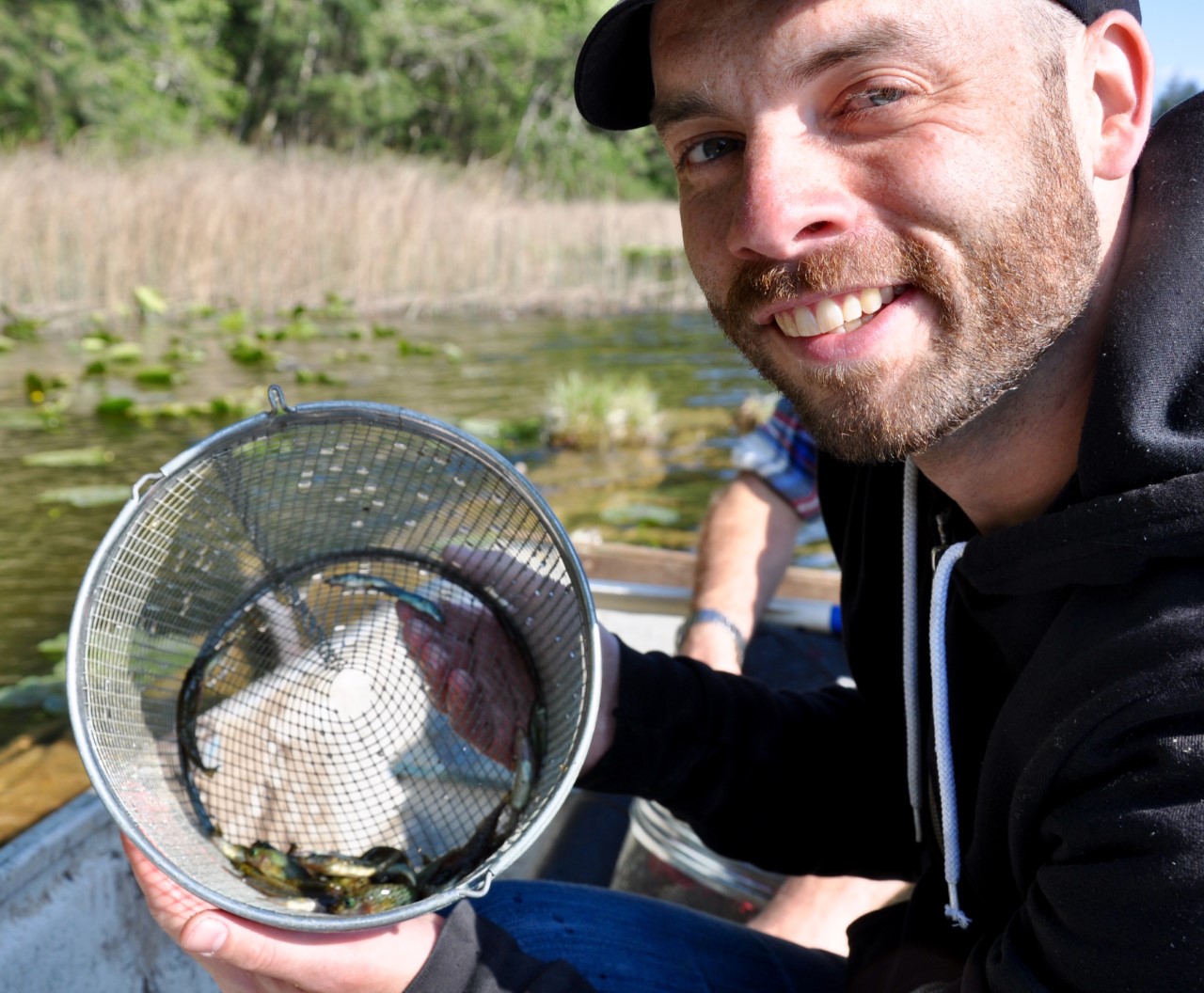
Michael White, an assistant professor in the department of genetics in the University of Georgia Franklin College of Arts and Sciences, has been awarded a grant from the National Science Foundation Faculty Early Career Development Program.
The five-year CAREER awards grants, among the NSF’s most prestigious, support junior faculty who exemplify the role of teacher-scholar and the integration of education and research within the context of the mission of their organizations.
White’s research focuses on understanding how sex chromosomes repair themselves during meiosis. His lab uses the three-spine stickleback fish as a model to study X and Y chromosome repair and explore the evolutionary forces that shape sex chromosomes at the earliest stages of development. The technique combines classical genetics, molecular genetics and bioinformatic approaches to understand key processes in the formation of sex chromosomes, including the regulation of meiotic recombination and the genetics of sex determination.
“This process is much trickier on sex chromosomes compared to the remainder of the genome,” said White. “Any sort of error in this process can cause different types of disorders, including sterility and sex reversal, and knowing how this works is important because it can have a huge impact on how sex chromosomes evolve.”
White arrived at UGA after an appointment at the Fred Hutchinson Cancer Research Center as a postdoctoral fellow of the Life Sciences Research Foundation in Seattle. He earned his Ph.D. from the University of Wisconsin, Madison in 2011.
“The NSF CAREER Award is not only a validation of Michael White’s current accomplishments, but a strong indication of future success,” said Nancy Manley, Distinguished Research Professor and head of the department of genetics. “Receiving this award will propel Mike’s research program to the next level, and we are very proud of this achievement.”
CAREER grants allow young faculty members to solidify their research programs and progress toward scholarly publishing. The program includes an educational component, for which White is recruiting local secondary education teachers to develop lesson plans for the classroom focused on sex chromosome biology. They will recruit undergraduate researchers to the regional southeastern evolutionary genetics conference.


